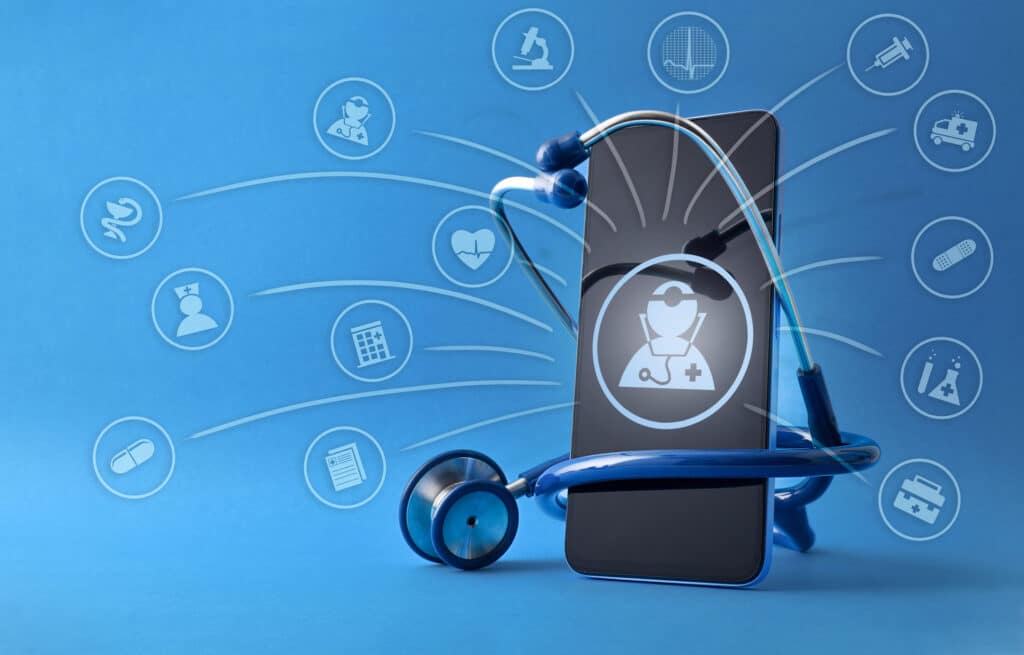
Why Nurse-Led Triage — Supported by Technology — Catches What Automation Alone Misses
When patients call medical practices with questions about symptoms that they’re experiencing, those patients are often scared, confused, or unsure whether they need to seek emergency care. This is where nurse-led telephone triage becomes a valuable resource, not simply to offer guidance about those symptoms, but also because it saves lives. At TriageLogic, positive health outcomes are achieved through a powerful combination of certified registered

Say Goodbye to Manual Messages: How Automated Medical Message Intake Captures Patient Requests 24/7
Manual message handling has become a persistent workflow problem for many medical practices. Whether it’s relaying a patient voicemail from 7:00 p.m. the night before, scribbling a front-desk note during a busy morning rush, or sharing a request through multiple staff members, it’s too easy for information to be lost or inaccurate. In turn, this leads to care delays, frustrated patients, overwhelmed physicians, and unnecessary

How Nurse Triage Software for Medical Practices Improves Patient Care — and Reduces Daily Stress
As a healthcare provider, what’s your biggest frustration when it comes to managing patient phone requests? Documentation? Compliance? Getting requests prioritized correctly? To address these issues, many medical practices rely on nurse triage software to streamline symptom assessments, improve patient safety, and increase the overall efficiency of clinical operations. To understand how this technology supports better workflows, let’s explore why your practice may need a

Stop the Late-Night Provider Pages: Medical Call Center Workflow Management With 24/7 Nurse Triage
Why the 2 A.M. Page Keeps Happening It’s 2:07 a.m. A pediatrician is paged about a child with a low-grade fever and mild congestion. The parent was concerned, so the answering service escalated the call “just to be safe.” The physician wakes up, assesses the situation, and provides home care instructions — guidance that a registered nurse using evidence-based protocols could have safely delivered. The

Resilience, Leadership, and Nurse Triage: Dr. Charu Raheja’s Story on REfresh
TriageLogic’s CEO, Dr. Charu Raheja, recently joined host Donna Orender on the REfresh podcast to talk about bridging the gap between entrepreneurship, healthcare access, and resilience you can’t learn in the boardroom. Much of her interview focused on her own healthcare experiences — including the loss of her father from a heart attack and a stroke that almost left her permanently paralyzed — and how

Is This Anxiety or Something More? Understanding Panic Attack vs. Heart Problem Symptoms
Why Chest Symptoms Can Be Confusing, and How Nurse Triage Helps When someone starts experiencing chest tightness, a racing heartbeat, or sudden shortness of breath, it’s natural to wonder what’s happening. Is it a panic attack, stress, or an indication of a heart problem? Many callers contact a nurse triage line because these symptoms can feel identical in the moment, making it difficult to know

Reduce PHI Exposure in Medical Message Intake by Using Secure Text and Dynamic Forms
Why PHI Exposure in Medical Message Intake Is a Growing Concern It’s no secret that hospital systems are consistently targeted by malware. Since medical intake is the starting point for any patient request, it’s also a key point of risk. When front desks are already overwhelmed with high call volume, though, it may feel like there isn’t enough infrastructure in place that can simultaneously help

Protect Patient Data and Reduce Liability: Why Triage Software Documentation Matters
The Role of Documentation in Modern Hospital Triage Imagine a patient calling after hours with chest discomfort that “comes and goes.” The triage nurse asks a few questions, gives guidance, and documents the interaction as best they can before moving on to the next call. The next morning, the primary provider reviews the note but sees that key details are missing, the urgency isn’t clear,

Why Data-Driven Nurse Triage Delivers More Consistent Care Than Internal Coverage
The Challenge of Consistency in Nurse Triage After-hours patient calls rarely follow a predictable pattern. Symptoms vary, and if urgency is unclear, clinicians may be forced to make decisions with limited context and time. For many practices, internal nurse or provider call rotation may feel familiar, but that familiarity does not always translate to consistent patient guidance. This is why data-driven nurse triage can offer

When Patient Calls Turn Into Care Delays: The Hidden Risk in Hospital Message Intake
Why Care Is Often Delayed Care delays don’t always start with a missed diagnosis or a clinical error. More often, they begin with a patient request that isn’t captured clearly, routed correctly, or documented in time. Hospital message intake is a critical part of patient safety and front desk operations, yet it may not be managed as closely as other areas. What may appear to

Clinical Call Center Compliance: Why Nurse Triage Software Matters for Healthcare Teams
Compliance Is Becoming Harder to Maintain in Healthcare Call Centers For managers, clinical call center compliance is about more than adhering to policy. It directly affects the safety of your patients, how prepared your team is to be audited, and how well your organization manages (and minimizes) risk. If you’re experiencing higher-than-normal call volume, whether due to seasonal events or simply an increase in patient

Standardize After-Hours Clinical Coverage With Licensed RNs, Proven Protocols, and Real Results
Are Your After-Hours Patient Calls Going Unanswered? If you’re seeing a lot of patient calls go unanswered or delayed because they come in after your office is closed, you may be wondering whether managing these requests should remain an internal service or be outsourced to a licensed team. After-hours clinical coverage may be the solution you need to enhance patient safety, reduce provider liability, and
